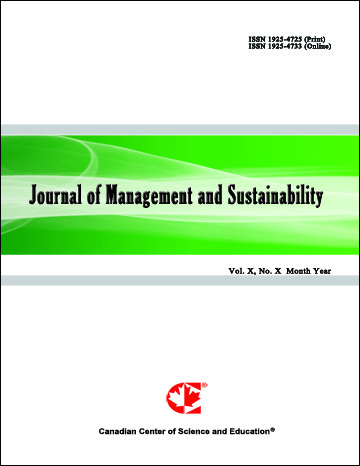Policy Implementation of Fisheries Economic Empowerment and Economic Resilience in the Long-Term of Sustainable Development in Kupang City, Indonesia
- Malisye Christin Sjioen
- Jimmy Pello
- Jeny Eoh
- Lenny M. Tamunu
- Apolonia Diana Sherly da Costa
Abstract
A substantial problem for the economic development of fishermen in Kupang City, Indonesia is that there are 5,955 fishermen who still have a smaller income than the expenditure and limited access to the rights to control fisheries resources. The purpose of this study is to analyze and describe the implementation of fisheries economic empowerment and economic resilience policies in Kupang City using descriptive qualitative methods focusing on the Sala Model theory proposition from Riggs (1964) within the framework of fishermen economic empowerment development paradigm and the framework of economic resilience and political resilience (capital) which matters to economic geography and its economic sustainable development policy for the fishermen, from (da Costa, 2018). The results have shown that the implementation of fishermen’s economic empowerment policy through the provision of capital assistance, training and infrastructure facilities by the local government in Kupang City was not responsive to fishermen; The political support of the Indonesian government is inconsistent, it appears in the lack of internal control and its systems in the process of using ships by fishing groups; In response to this, the local government of Kupang City through related agencies should make progressive policies based on the Sala Model theory from Riggs (1964) and fishermen’s economic resilience and political resilience (capital) for sustainable development theory from (da Costa, 2018). Its model’s theories have an aim to achieve a productive economy at a high level (sufficient level). In order to achieve a sufficient level of economy, the work specialization is needed and positive political development through policies should not be formalistic. Concretely, an affirmative action is needed, that is, the assistantship is not given to individuals; The fishing unit is given to fishermen according to their wants and needs without going through a project approach, this fact shows that there is a limitation or minimization of the fishermen’s economic resources or resilience in the region. Furthermore, from fishermen’s economic resilience for sustainable development, a policy management and its implementation of the local government in the region is assessed as the top final solution where the fishermen would achieve their long-term of economic resilience (productive or sufficient level) which was supposed to be successful if there was not having a lack of policy from the local government in the region regarding the physical resource i.e., technology policy (ship). The fishermen have been facing this economic problem which means that the analysis of economic resilience is important and promptly. The importance of the economic resilience’s analysis and political resilience (capital) according to da Costa’s (2018, p. 160) Theories align or conform with the Sala Model Theory (Riggs, 1964). Importantly, the ship technology has a function as a medium from the fishermen in accessing the fisheries. However, the result has shown that from the point of views of da Costa (2018) matters about the sufficient or productive level of economic resources (resilience) of fishermen which was not still achieved due to their limited access (man power or capitals) and income, discrimination in granting loans to fishermen as long as insufficiency support of the local government to the fishermen’s economic livelihoods. It implies to economic geography’s perspective which puts forward fishermen’s knowledge and skills (ability or endeavor: human or individual resilience) to reach a longer term of economic resilience in the region. Finally, this study emphasizes on the future fishermen’s policy actions which should be viewed as a mandatory action to be implemented by the local Government in Indonesia. Thus, the economic empowerment and resilience of fishermen in the region i.e., Kupang City, Indonesia can be effectively and productively or sufficiently implicated in increasing the ability of the regional economy as it supports a sustainable development in the region.
- Full Text:
 PDF
PDF
- DOI:10.5539/jms.v10n1p15
Journal Metrics
Google-based Impact Factor (2021): 1.54
h-index (July 2022): 37
i10-index (July 2022): 147
h5-index (2017-2021): 12
h5-median (2017-2021): 19
Index
- Academic Journals Database
- ANVUR (Italian National Agency for the Evaluation of Universities and Research Institutes)
- CAB Abstracts
- CNKI Scholar
- EconBiz
- Excellence in Research for Australia (ERA)
- GETIT@YALE (Yale University Library)
- Harvard Library
- HeinOnline
- Infotrieve
- JournalTOCs
- LOCKSS
- MIAR
- PKP Open Archives Harvester
- RePEc
- Scilit
- SHERPA/RoMEO
- Stanford Libraries
- UCR Library
Contact
- Evelyn XiaoEditorial Assistant
- jms@ccsenet.org
